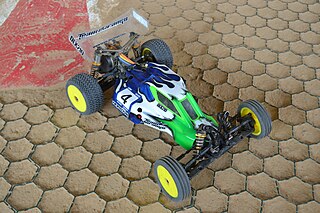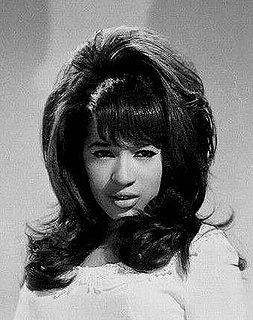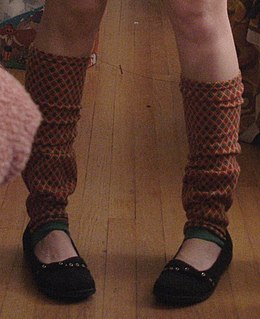 W
WThe 1:10 radio-controlled off-road buggy is a 1:10 scale radio-controlled dune buggy designed for off-road racing. These cars are originally based on their full-scale equivalents that are commonly found in desert racing. The buggies are split into two race categories, two (2WD) and four-wheel drive (4WD). These can easily be distinguished visually by their wheel size at the front. Cars are typically electric powered, but nitro versions do exist but are less common because racing classes exist for electric cars. The class is inexpensive and similar to a number of other classes, and this makes them popular with newcomers. The cars are also known as 1/10 off-road.
 W
WThe Abdominizer was an abdominal exerciser invented in 1984 by Canadian chiropractor Dennis Colonello and marketed through infomercials by the Fitness Quest corporation of Canton, Ohio, selling around six million.
 W
WAerobics is a form of physical exercise that combines rhythmic aerobic exercise with stretching and strength training routines with the goal of improving all elements of fitness. It is usually performed to music and may be practiced in a group setting led by an instructor, although it can be done solo and without musical accompaniment. With the goal of preventing illness and promoting physical fitness, practitioners perform various routines comprising a number of different dance-like exercises. Formal aerobics classes are divided into different levels of intensity and complexity and will have five components: warm-up, cardiovascular conditioning, muscular strength and conditioning, cool-down and stretching and flexibility. Aerobics classes may allow participants to select their level of participation according to their fitness level. Many gyms offer different types of aerobic classes. Each class is designed for a certain level of experience and taught by a certified instructor with a specialty area related to their particular class.
 W
WThe airplane game, also known as the Plane Game, was a style of pyramid scheme in the 1980s first active in North America and then in Western Europe.
 W
WAn amusement arcade is a venue where people play arcade games such as video games, pinball machines, electro-mechanical games, redemption games, merchandisers, or coin-operated billiards or air hockey tables. In some countries, some types of arcades are also legally permitted to provide gambling machines such as slot machines or pachinko machines. Games are usually housed in cabinets. The term used for ancestors of these venues in the beginning of the 20th century was penny arcades.
 W
WAqua Net is an American brand of hair spray that was notable for its popularity and for its marketing strategy, which aimed to make hair spray "as ubiquitous as soap". The brand is known for its distinctive large purple spray cans, and the spray itself is known for its strong hold and distinctive smell.
 W
W"Baby on board" is the message of a small sign intended to be placed in the back window of an automobile to caution other drivers that an infant is travelling in the automobile.
 W
WA boombox is a transistorized portable music player featuring one or two cassette tape recorder/players and AM/FM radio, generally with a carrying handle. Beginning in the mid 1980s, a CD player was often included. Sound is delivered through an amplifier and two or more integrated loudspeakers. A boombox is a device typically capable of receiving radio stations and playing recorded music. Many models are also capable of recording onto cassette tapes from radio and other sources. In the 1990s, some boomboxes were available with minidisc recorders and players. Designed for portability, boomboxes can be powered by batteries as well as by line current. The boombox was introduced to the American market during the late 1970s. The desire for louder and heavier bass led to bigger and heavier boxes; by the 1980s, some boomboxes had reached the size of a suitcase. Some larger boomboxes even contained vertically mounted record turntables. Most boomboxes were battery-operated, leading to extremely heavy, bulky boxes.
 W
WCabbage Patch Kids are a line of one-of-a-kind, cloth dolls with plastic heads first produced by Coleco Industries in 1982. They were inspired by the Little People soft sculptured dolls sold by Xavier Roberts as collectibles and registered in the United States copyright office in 1978 as 'The Little People'. The brand was renamed 'Cabbage Patch Kids' by Roger L. Schlaifer when he acquired the exclusive worldwide licensing rights in 1982.
 W
WThe California Raisins are a fictional rhythm and blues animated musical group as well as advertising and merchandising characters composed of anthropomorphized raisins. Lead vocals were sung by musician Buddy Miles. The California Raisins were popular in the mid-to-late 1980s through claymation TV commercials and animated specials, winning an Emmy Award and one nomination.
 W
WCar surfing involves riding on the outside of a moving vehicle being driven by another person. It has resulted in numerous deaths, predominantly caused by head injuries.
 W
WCare Bears are a fictional group of multi-colored bear characters, originally painted in 1981 by artist Elena Kucharik to be used on greeting cards from American Greetings but in 1983, the characters were turned into plush teddy bears.
 W
WChia Pets are American styled terracotta figurines used to sprout chia, where the chia sprouts grow within a couple of weeks to resemble the animal's fur or hair. Moistened chia seeds are applied to a grooved terracotta figurine.
 W
WEnid Strict, better known as The Church Lady, is a recurring character from a series of sketches on the American television show, Saturday Night Live, that appeared from 1986 to 1990, and again in 1996, 2000, 2011, and 2016. She also appeared on The Dana Carvey Show in March 1996, reading a Top Ten List, "New Titles for Princess Diana."
 W
WClub drugs, also called rave drugs, or party drugs are a loosely defined category of recreational drugs which are associated with discothèques in the 1970s and nightclubs, dance clubs, electronic dance music (EDM) parties, and raves in the 1980s to today. Unlike many other categories, such as opiates and benzodiazepines, which are established according to pharmaceutical or chemical properties, club drugs are a "category of convenience", in which drugs are included due to the locations they are consumed and/or where the user goes while under the influence of the drugs. Club drugs are generally used by teens and young adults. This group of drugs is also called "designer drugs", as most are synthesized in a chemical lab rather than being sourced from plants or opiates.
 W
WCowpunk is a subgenre of punk rock that began in the United Kingdom in the late 1970s and Southern California in the early 1980s. It combines punk rock or new wave with country, folk, and blues in its sound, lyrical subject matter, attitude, and style. Examples include Social Distortion, The Gun Club, The Long Ryders, Dash Rip Rock, Violent Femmes, The Blasters, Mojo Nixon, Meat Puppets, The Beat Farmers, Rubber Rodeo, Rank and File, and Jason and the Scorchers. Many of the musicians in this scene subsequently became associated with alternative country, roots rock or Americana.
 W
WA deely bobber is a novelty item of headgear comprising a headband to which are affixed two springy protrusions resembling the antennae of insects or of stereotypical little green men. These "antennae" may be topped with simple plastic shapes or more elaborate and fanciful decorations, such as mini pom poms or light-emitting diodes. The name "deely bobber" is a genericized trademark; other names include deely-boppers, bonce boppers, or space boppers. In June 1982, a headline The New York Times called them Martian antennae. A colloquial term used in Norfolk, England is Bibbly Bopps.
 W
WGarbage Pail Kids is a series of sticker trading cards produced by the Topps Company, originally released in 1985 and designed to parody the Cabbage Patch Kids dolls, which were popular at the time.
 W
WA footbag is the term for a small, round bag usually filled with plastic pellets or sand, which is kicked into the air as part of a competitive game or as a display of dexterity. "Hacky Sack" is the name of a brand of footbag popular in the 1970s, which has since become a generic trademark.
 W
WHome computers were a class of microcomputers that entered the market in 1977 and became common during the 1980s. They were marketed to consumers as affordable and accessible computers that, for the first time, were intended for the use of a single nontechnical user. These computers were a distinct market segment that typically cost much less than business, scientific or engineering-oriented computers of the time such as those running CP/M or the IBM PC, and were generally less powerful in terms of memory and expandability. However, a home computer often had better graphics and sound than contemporary business computers. Their most common uses were playing video games, but they were also regularly used for word processing, doing homework, and programming.
 W
WInline skates are a type of roller skate used for inline skating. Unlike quad skates, which have two front and two rear wheels, inline skates typically have two to five wheels arranged in a single line. Some, especially those for recreation, have a rubber "stop" or "brake" block attached to the rear of one or occasionally both of the skates so that the skater can slow down or stop by leaning back on the foot with the brake skate.
 W
WJazzercise is a dance fitness franchise company founded by Judi Sheppard Missett in 1969 and headquartered in Carlsbad, California, United States.
 W
WLeg warmers are coverings for the lower legs, similar to socks but thicker and generally footless. Leg warmers are worn to keep the lower legs warm in colder weather. They can be tubular sleeves, long fabric wrappings, or simple pieces of fur or fabric tied around the calves. They are used in several outdoor activities and sports including cycling, soccer, hockey, hiking, ice skating, and dance.
 W
WMiami Vice is an American crime drama television series created by Anthony Yerkovich and produced by Michael Mann for NBC. The series starred Don Johnson as James "Sonny" Crockett and Philip Michael Thomas as Ricardo "Rico" Tubbs, two Metro-Dade Police Department detectives working undercover in Miami. The series ran for five seasons on NBC from September 16, 1984 to January 25, 1990. The USA Network began airing reruns in 1988, and broadcast an originally unaired episode during its syndication run of the series on January 25, 1990.
 W
WMod is a subculture that began in London and spread throughout Great Britain and elsewhere, eventually influencing fashions and trends in other countries, and continues today on a smaller scale. Focused on music and fashion, the subculture has its roots in a small group of stylish London-based young men in the late 1950s who were termed modernists because they listened to modern jazz. Elements of the mod subculture include fashion ; music ; and motor scooters. In the mid-1960s, the subculture listened to power pop rock groups with mod following, such as The Who and The Small Faces, after the peak Mod era. The original mod scene was associated with amphetamine-fuelled all-night dancing at clubs.
 W
WThe moonwalk or backslide is a dance move in which the performer glides backwards but their body actions suggest forward motion. The moonwalk is a popping move. It became popular around the world following Michael Jackson's moonwalk during the performance of "Billie Jean" on Motown 25: Yesterday, Today, Forever, which was broadcast on May 16, 1983, and he included it in tours and live performances. Jackson has been credited as renaming the "backslide" to the moonwalk and it became his signature move.
 W
WMTV is an American cable channel that launched on August 1, 1981. Based in New York City, it serves as the flagship property of the ViacomCBS Domestic Media Networks division of ViacomCBS. Prior to launch, the network was first tested on December 1, 1977, as Sight on Sound.
 W
WPac-Man is a maze arcade game developed and released by Namco in 1980. The original Japanese title of Puck Man was changed to Pac-Man for international releases as a preventative measure against defacement of the arcade machines by changing the P to an F. Outside Japan, the game was published by Midway Games as part of its licensing agreement with Namco America. The player controls Pac-Man, who must eat all the dots inside an enclosed maze while avoiding four colored ghosts. Eating large flashing dots called "Power Pellets" causes the ghosts to turn blue, allowing Pac-Man to eat them for bonus points.
 W
WA plasma globe or plasma lamp is a clear glass container/ball filled with a mixture of various noble gases with a high-voltage electrode in the center of the container.
 W
WA poseur is someone who poses for effect, or behaves affectedly, who affects a particular attitude, character or manner to impress others, or who pretends to belong to a particular group. A poseur may be a person who pretends to be what they are not or an insincere person; they may have a flair for drama or behave as if they are onstage in daily life.
 W
WA rave is an organised dance party at a warehouse, forest, cave or other private property or public space, typically featuring performances by DJs, playing a seamless flow of electronic dance music. The word also means excellent, great, or brilliant, and can be used to describe any genre of music and entertainment. DJs at rave events play electronic dance music on vinyl, CDs and digital audio from a wide range of genres, including techno, hardcore, house, dubstep, and alternative dance. Occasionally live musicians have been known to perform at raves, in addition to other types of performance artists such as go-go dancers and fire dancers. The music is amplified with a large, powerful sound reinforcement system, typically with large subwoofers to produce a deep bass sound. The music is often accompanied by laser light shows, projected coloured images, visual effects and fog machines.
 W
WA roller disco is a discothèque or skating rink where all the dancers wear roller skates of some kind. The music played is modern and easily danceable, historically disco but in modern times including almost any form of dance, pop or rock music.
 W
WThe Rubik's Cube is a 3-D combination puzzle invented in 1974 by Hungarian sculptor and professor of architecture Ernő Rubik. Originally called the Magic Cube, the puzzle was licensed by Rubik to be sold by Ideal Toy Corp. in 1980 via businessman Tibor Laczi and Seven Towns founder Tom Kremer. Rubik's Cube won the 1980 German Game of the Year special award for Best Puzzle. As of January 2009, 350 million cubes had been sold worldwide, making it the world's top-selling puzzle game. It is widely considered to be the world's best-selling toy.
 W
WThe Rubik's Revenge is a 4×4×4 version of Rubik's Cube. It was released in 1981. Invented by Péter Sebestény, the Rubik's Revenge was nearly called the Sebestény Cube until a somewhat last-minute decision changed the puzzle's name to attract fans of the original Rubik's Cube. Unlike the original puzzle, it has no fixed facets: the centre facets are free to move to different positions.
 W
WA shopping mall is a North American term for a large indoor shopping center, usually anchored by department stores. The term "mall" originally meant a pedestrian promenade with shops along it, but in the late 1960s, it began to be used as a generic term for the large enclosed shopping centers that were becoming commonplace at the time. In the U.K., such complexes are considered shopping centers, though "shopping center" covers many more sizes and types of centers than the North American "mall". Other countries may follow U.S. usage and others follow U.K. usage.
 W
WShutter shades, also known as slatted shades, louvered shades, or Venetian blind shades are sunglasses that, instead of having darkened lenses, have horizontal slats similar to window shutters, which are an integral part of the frame.
 W
WA slap bracelet is a bracelet consisting of layered, flexible stainless steel bistable spring bands sealed within a fabric, silicone, or plastic cover. It can have many different colours and/or designs.
 W
WThe Smurfs is a Belgian comic franchise centered on a fictional colony of small, blue, humanoid creatures who live in mushroom-shaped houses in the forest. The Smurfs was first created and introduced as a series of comic characters by the Belgian comics artist Peyo in 1958, wherein they were known as Les Schtroumpfs. There are more than 100 Smurf characters, and their names are based on adjectives that emphasise their characteristics, such as "Jokey Smurf", who likes to play practical jokes on his fellow smurfs. "Smurfette" was the first female Smurf to be introduced in the series. The Smurfs wear Phrygian caps, which came to represent freedom during the modern era.
 W
WTrain surfing is the act of riding on the outside of a moving train, tram or another rail transport. In a number of countries, the term train hopping is used synonymously with freight hopping, which means riding on the outside of a freight train, while train surfing can be practiced on any type of train. This type of travelling can be dangerous and even life-threatening, because there is a risk of death or serious injury from falling off a moving train, electrocution from power supply, colliding with railway infrastructure while riding outside off structure gauge on the side or on the roof of a train, or unsuccessful attempts to jump on a moving train or off it. Today, the practice is forbidden by statutes on many railroads in the world. Despite this, it is still practiced, especially on those railroads where the trains are overcrowded.
 W
WTrapper Keeper is a brand of loose-leaf binder created by Mead. Popular with students in the United States, Canada and parts of Latin America from the 1970s to the 1990s, it featured sliding plastic rings, folders, and pockets to keep schoolwork and papers, and a wrap around flap with a Velcro closure.
 W
WThe Wacky WallWalker was a toy molded out of a sticky elastomer. It was shaped similar to a spider, and when thrown against a wall would "walk" its way down. It was a hugely popular toy in the early 1980s.
 W
WWalkman is a brand of portable media players manufactured by Sony. The original Walkman, released in 1979, was a portable cassette player that allowed people to listen to music of their choice on the move. Its popularity made "walkman" an unofficial term for personal stereos of any producer or brand. By 2010, when production stopped, Sony had built about 200 million cassette-based Walkmans.
 W
W"Where's the beef?" is a catchphrase in the United States and Canada, introduced as a slogan for the fast food chain Wendy's in 1984. Since then it has become an all-purpose phrase questioning the substance of an idea, event, or referring to the lack of information from Pepsi to its Bloomington employees.
Where's Wally? is a British series of children's puzzle books created by English illustrator Martin Handford. The books consist of a series of detailed double-page spread illustrations depicting dozens or more people doing a variety of amusing things at a given location. Readers are challenged to find a character named Wally hidden in the group.
 W
W"Who shot J.R.?" is an advertising catchphrase that American network CBS created in 1980 to promote the television series Dallas. It referred to the mystery surrounding a murder attempt against villain J.R. Ewing in the show's third-season finale "A House Divided". The mystery and its catchphrase became a global phenomenon, with international odds-makers setting odds for the culprit. The mystery was not resolved until the fourth episode of the fourth season titled "Who Done It" which aired eight months later, with an estimated 83 million viewers tuning in. The catchphrase has a strong legacy in pop culture and the format helped popularize the cliffhanger ending for television series.